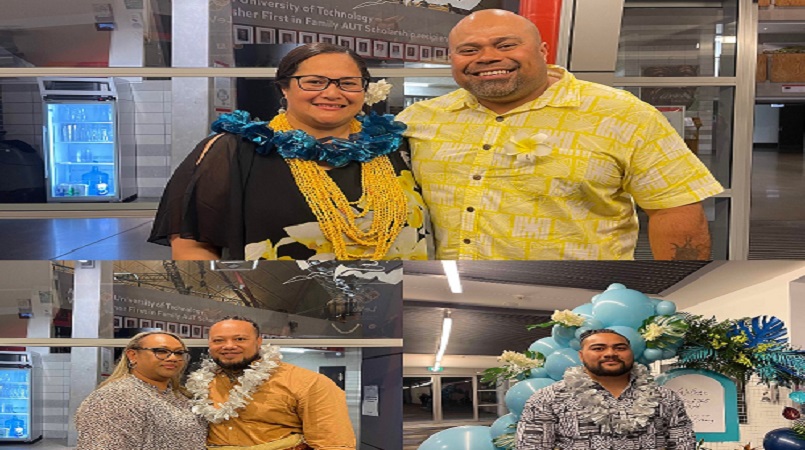
We need more Pacific people to work in the mental health sector.
That's the message from the winners of a record number of scholarships awarded to Pasifika mental health students.
At Tuesday night's Le Va Futures That Work Scholarships Dinner in Manukau, 133 students won a scholarship boost to help them in their journey in the mental health sector.
Anne-Marie Tupetoliahi Hoyt Erick, who's studying a postgraduate diploma in Psychological Practice, wants to see more Pasifika in her disabilities sector.
“Being here with everyone else, I’m recognising that there’s going to be a lot more, which is fantastic, but I currently work in the disability sector and I think I haven’t come across any psychologists in that space.
“I have yet to meet any other Niuean psychologists and I think it’s just so important because just the level of engagement in that clinical space is so important.”
Erick, who works as a Behaviour Support Specialist at Spectrum Care, returned to postgraduate study after taking time to focus on other aspects of her life.
“I actually started studying psychology 20 years ago and it just felt like the right time to pursue a career as a psychologist after having a family, working for many years and recognising that it’s good to have an actual profession to support the work that you do, especially for our Pacific people.”
Another scholarship recipient, Laura Tongalea-Nolan, is studying for a Masters programme in Health Practice, specialising in Mental Health and Addictions.
When Tongalea-Nolan found out there was a separate course focused on addictions, it was a “no-brainer” for her to enter the Masters programme.
“I think we’ve always had an attachment to mental health, so the addiction space has been amalgamated with mental health and so to know there was a separate pathway for us to really advance and hone our skills and knowledge, it was a no-brainer.”
Tongalea-Nolan says having more Pacific people work in the area of addiction will lead to much improved results for Pasifika.
“There aren’t many of us practising in the addictions workforce and I think if we take an equity lens, we know that if we introduce more Pacific practitioners into the sector, that’s going to enhance engagement with our Pacific communities, which can only lead to better outcomes.”
Victor Tu’ungafasi, who's studying for a certificate in Health Science, says increasing the number of Pasifika in the health sector will make services more accessible to Pacific people.
“Just in order for our Pacific people to receive care that’s not only clinically competent, but also culturally competent because a cultural barrier can become a limiting factor in our Pacific people accessing good healthcare.
“I think the more of our people we can get in the health system, the better we are at providing that care to them.”
Tu’ungafasi has a background in nursing, where he’s worked in the children and adolescent mental health environment.
He says he returned to tertiary study to become a better servant to Pasifika in New Zealand and says initiatives such as the Futures That Work Scholarships will help encourage more Pasifika to study in the health sector.
“It’s definitely going to enable me to pursue my dreams and have an impact on the health of Pacific people here in New Zealand so I think it’s an awesome thing for anyone to get it, but for myself personally, I’m really grateful that I’ve been able to receive this scholarship.”
Second year nursing student Tu’uta ki Hakanoa Maue says he’s humbled and grateful for the Futures That Work Scholarship.
“First and foremost giving thanks and praises to my Lord and Savior. I know that if it wasn’t through Him, these doors and opportunities definitely wouldn’t have been opened to not just myself, so I stand here representing my family.”
Maue says the awards dinner “reflects the broad need” that Pasifika need to be out in the mental health workforce.
“We occupy those spaces, but sometimes it doesn't reflect on the other side of the office or the other side of the floor, so to speak.
“I’d encourage our Pasifika, our people to be bold and brave and courageous, step out there because there is a real need for our people just to serve and that’s something that we do well.”
Photo supplied
